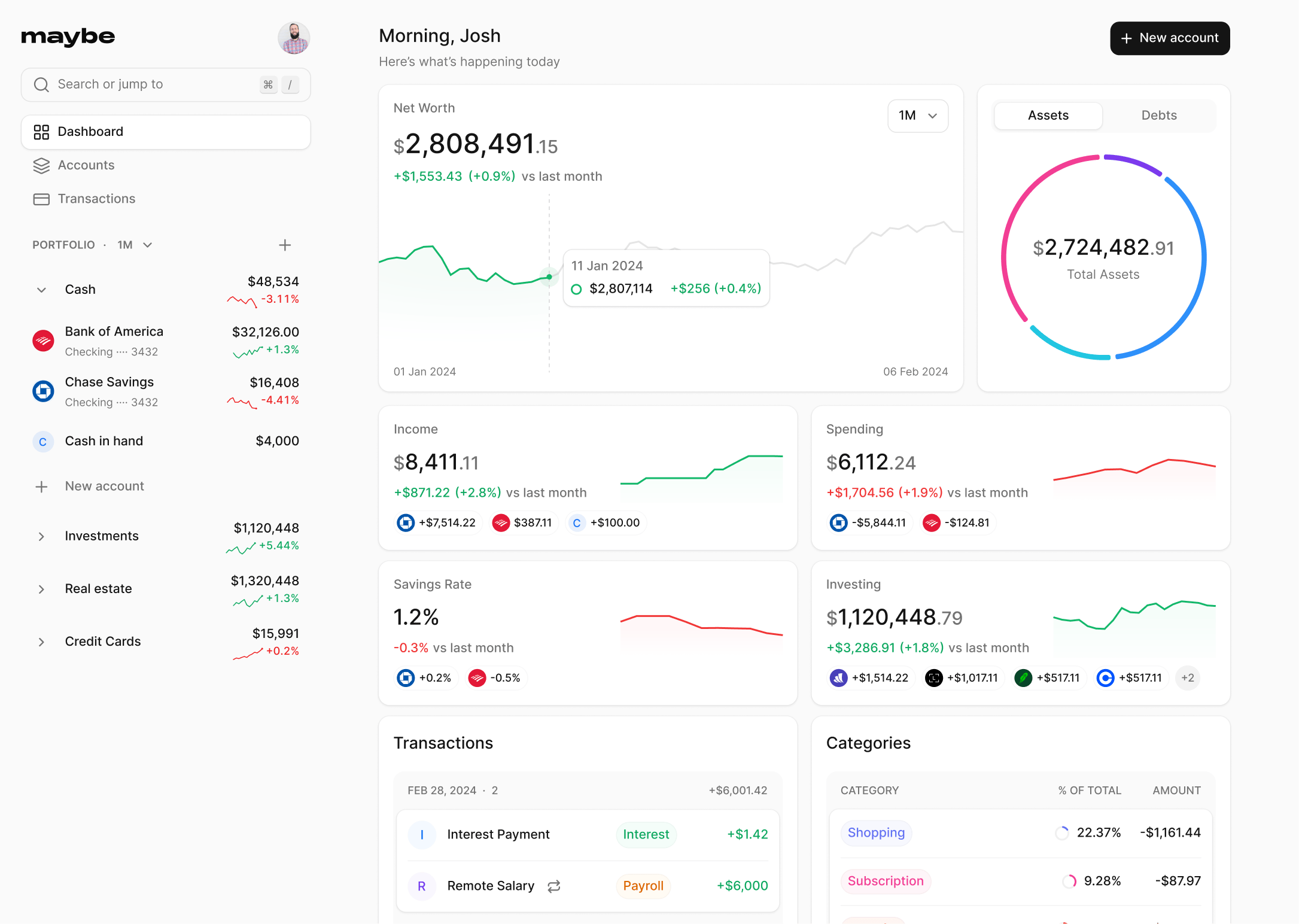Why raise any money?

Author
Josh Pigford
What's the purpose of raising money from investors (or individuals) when I just had a $4m exit from Baremetrics? Couldn't I just self-fund it, keep all of the equity and not have to deal with the obligations that come with outside capital?
Yes, I could do that, but I could do a lot of things. Just because you can doesn't mean you should. And obviously that goes both ways. The answer to "should you raise outside capital?" is complex and completely subjective. What's true for one person won't be true for another and this is why I think the "bootstrap vs VC" conversation is ultimately kind of dumb. Everyone uses extremes and at the end of the day, it's okay to bring in outside money. You do you.
So, why am I looking in to raising money for Maybe?
1. Risk reduction
Over the years I've improved my track record, but at the end of the day, building something out of nothing is risky. Raising money, while bringing its own share of cons, has the major pro of reducing risk, especially in the early days.
I'm putting in $100,000 of my own money to prime the pump, but while I could use more of my money, I don't necessarily need to thanks to the next point...
2. Because I can
This sounds far more arrogant than I intend, but at the end of the day, due to past successes, there are quite a few people who would like to invest in the things I build. That's obviously an incredibly privileged position to be in, but really any entrepreneur should strongly consider every advantage they have.
In addition, the market for investment capital is quite "hot" at the moment. Relatively speaking, there's a ton of money going around at decent terms (i.e. "cheap" money), so the economics make sense.
3. Fintech companies are expensive
The core of building a financial tech company revolves around financial data and that data, along with the regulations that come with handling that data, is not cheap. I'll spend thousands on data feeds just to get my foot in the door on various data feeds and they quickly scale up from there.
In addition, there are many more regulations when it comes to dealing with finances (as there should be) and the lawyer fees alone are 5-figures, not to mention the fees just to maintain approval status with various government entities.
Oh, and the engineers to actually build the product? Yeah, they like to get paid. And if I learned anything from building a data-heavy company before, it's that handling huge amounts of data performantly and securely requires people who know what they're doing. While I can hack some things together, I'll create massive technical debt right of the gate that we'll spend months undoing after the fact. Hiring a team that knows what they're doing ultimately gets us to profitability faster.
4. I'm okay giving up some equity
Whether I've got 100%, 90% or 50% ultimately doesn't really matter to me. My reasons for building Maybe are primarily to scratch an itch and to try something new. I'm doing it for the utility and for the experience. Giving up a percentage of the company to make that happen is largely irrelevant, assuming the tradeoff makes economical sense.
New experiences
This really comes down to trying a new way to build things. I could go the classic "bootstrapper" route and figure out a way to start making money really quickly, but I've done that a dozen times over already and I'd ultimately like to try a new route for building something.
This isn't me going the "rocketship VC" route. I do not plan on raising round after round, propped up by endless streams of venture capital. I plan to build a highly profitable business that's worth a substantial amount of money, and if there are people who would like to be a part of that and help it get off the ground, I'd love to have them.
Asset Allocation Examples: Real-World Strategies for Optimal Diversification

Josh Pigford
The Ultimate Guide to Asset Allocation: Strategies for Optimal Portfolio Diversification

Josh Pigford
Why you'll (mostly) fail to beat the index by trading

Josh Pigford
Join the Maybe  waitlist
waitlist
Join the waitlist to get notified when a hosted version of the app is available.
